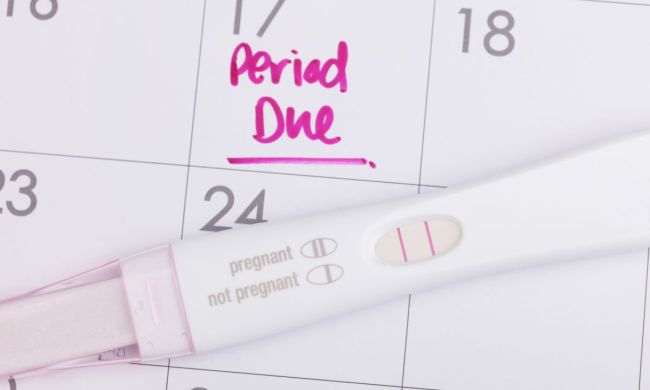Giving birth to your precious little human is one of the most amazing and tiring experiences of your life. You get home and then what? Where’s the instruction manual that’s supposed to come with the child? Well, you can have one in the form of a postpartum doula.
No matter what kind of birth you have, a postpartum doula can be a fantastic addition to your at-home care and recovery. It doesn’t matter if it’s your first bundle of joy or fifth — a postpartum doula can blend into your routine however you need them to. We can help you figure out if a postpartum doula will work for your family.

The basics of a postpartum doula
Not all doulas are trained in postpartum care. A birth doula is there for the pregnancy and birth, but a postpartum doula is a bit different.
What is a postpartum doula?
A postpartum doula is there for emotional, physical, and informational support during the recovery process after having a baby. If you’re thinking assistant to the manager (that’s you), then you’re on the right track.
How much do postpartum doulas charge?
This one is a bit tricky to answer, as it varies by state and according to the amount of experience the doula has. You will have to research your state to find the exact price.
Cost ranges
- Starting rates between $500 to $800
- More experienced ones can cost up to $2,500 to $3,000 (and higher)
- Doulas still getting their certificate can start at $20 per hour
Does insurance cover a postpartum doula?
- Depends on your insurance
- Not all costs will be covered
Coverage varies by your insurance company. Call and ask right away to see if any postpartum doula services are covered. But even if your insurance says yes, you may not be refunded the full amount. Use this detailed explanation by Holistically Loved for insurance reimbursement tips.
How long do postpartum doulas stay?
These are your fourth-trimester companions. For the first six to twelve weeks after you bring your baby home, a postpartum doula is there to help. You can even hire overnight postpartum doulas.
Why you shouldn’t hire a postpartum doula
Let’s go over some of the main reasons you might not want a postpartum doula by your side when you bring your baby home. Or why you think you don’t want one.
The cost
With or without insurance, the additional cost of having a postpartum doula may not fit your budget. But having a baby is expensive no matter what isn’t it?
You have no idea what a postpartum doula is
Have you even heard of a postpartum doula? Maybe you only knew about doulas that help with the birth.
It’s your second (or third or fourth) kid
You’re an old pro and don’t think having the extra support is worth it. That’s reasonable.
You just don’t want one
You’re the parent. If that means no doula, then that means no doula.
You feel guilty
That mom guilt can be a powerful thing. Thinking you have to do it all on your own can stop you from looking into getting a postpartum doula.

Why you would want to hire a postpartum doula
There are many benefits to having a postpartum doula with you in those first weeks of bringing home a baby. Let’s go over the highlights.
You want to sleep
You can take a nap anytime you need to and if the baby cries, the doula can oversee things.
There are other little humans in the house
If there are siblings involved, trying to divide your time can be impossible. You can let the postpartum doula either take on the siblings or take on the baby so no one lacks attention.
Light housework/laundry/chores
The moment you have a child in the house, all of the housework seems to be three weeks behind. Your postpartum doula can help keep the house tidy.
Other great reasons to have a postpartum doula
- Time to run errands
- Breastfeeding support (or feeding in general)
- Can help with meals/meal prep
New moms with a postpartum doula also
- Have lower anxiety
- Have less stress
- Have a lower rate of postpartum depression (or less intense symptoms)
- Sleep better (and the baby does, too)
- Are more secure and confident in their parenting decisions
How to pick a postpartum doula
Always do your research. This person will be in your house, around your family, and in your life.
- Check references
- Do interviews — ask what duties they’re comfortable with doing and not doing
- Check credentials and certifications
- Know all costs – pay by the hour or for the duration wanted and get it in print
This person will provide assistance and support. They should help – not make you feel even crazier after having a baby.

Is a postpartum doula for you?
If you can afford it, a postpartum doula can be a huge help. Especially if you happen to tick a few boxes.
A postpartum doula would be beneficial if:
- You don’t have friends and family nearby
- Your partner can’t take time off work
- You have other kids to take care of
- You’re scared and unsure about caring for your first (or any) baby
- You’re prone to stress, anxiety, or depression
- You just want a support person on your side no matter what
So, is a postpartum doula worth it? If you have the financial means, find an experienced one, and want additional support, then yes — it can be absolutely worth it. Adjusting to the new, tiny, screaming, beautiful creature you just brought home can be a bit much. If you have the right postpartum doula with you, you can feel like your head is on a little straighter and enjoy those cries instead of wanting to join in with them.



